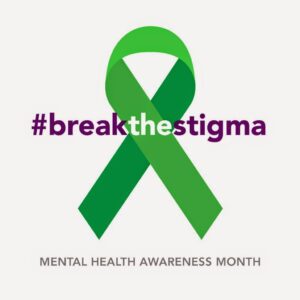May is Mental Health Awareness Month: #DoItForDucky
 Trigger Warning: Mental Health, Loss, Suicide
Trigger Warning: Mental Health, Loss, Suicide
Each May, we shine a light on an often-unseen struggle—mental health. This month offers a crucial opportunity to reflect, listen, and break the silence surrounding mental illness. The reality is that mental health challenges touch every life, whether through personal experience or by watching a loved one wrestle with invisible battles. The stories we share can be painful, but they are also powerful. They help us build understanding, reduce stigma, and inspire action.
This year, our observance of Mental Health Awareness Month is deeply personal, as we honor the memory of William Cooper “Ducky” Hansen—a son, a loved one, and a life lost far too soon. Through grief, advocacy, and hope, we remember Ducky and commit ourselves to supporting those who are struggling.
Honoring Ducky
In January, Ron Hansen, husband of Jennessa Hansen, MWSBF Servicing Administrator, shared a devastating message with family and friends:
“As we enter 2025, I want to share something deeply personal and profoundly painful. On January 1, my beloved son, William Cooper ‘Ducky’ Hansen, lost his battle with mental health and took his own life. My heart is shattered, and the waves of grief come crashing over me, leaving me broken, then numb, only to be swept away again.
“As a family, we are navigating the unimaginable pain of saying goodbye to Ducky. We are trying to understand the struggles he faced and the demons he wrestled with every day.”
Ron’s email continued, sharing information about the memorial services, donation opportunities, and his plans for–and commitment to–supporting mental health and suicide prevention going forward. MWSBF employees rallied to the Hansens’ side, donating funds for memorial costs and for future advocacy work the Hansens would embrace to continue honoring Ducky’s memory.
New Hope for Those Hurting
On March 28, 2025, the Huntsman Mental Health Institute opened the Kem and Carolyn Gardner Mental Health Crisis Care Center. The $64 million facility, located across the street from the Salt Lake County Metro Jail, is designed to revolutionize how the state of Utah responds to mental health emergencies. It can serve over 9,600 unique patients annually through its first-floor crisis support services. 
Danny Mangum, Chief Operating Officer and Executive Vice President of MWSBF, toured the facility prior to its grand opening and met with Kevin Curtis, LCSW, a licensed clinical social worker and director of the Crisis Care Center. Mangum took a special interest in the center for many reasons, one being his role as treasurer for Pillows for Prisoners, a nonprofit that gifts pillows to women at the Salt Lake County Metro Jail each Mother’s Day and during the winter holiday season.
“Too many individuals suffering from a mental health crisis end up in jail because, historically, we have lacked the resources necessary to care for them,” Mangum explained. “It’s exciting to see a dedicated space for individuals experiencing mental health crises, offering resources focused on coping with difficulties rather than facing incarceration or feeling as if they have no options for support.”
Some of the center’s highlights include:
- 24/7 walk-in crisis care with up to 23-hour stays for stabilization
- A 24-bed inpatient acute care unit
- Outpatient treatment for mental health and substance use disorders
- Medication-assisted treatment for chemical dependency
- Case management and coordination with community resources
- Access to legal and dental care services through community partnerships
Support for Mental Health Crises
There’s no single cause for a mental health crisis, and the signs can manifest differently for each person. If you notice a loved one displaying the following behaviors, they may need support:
- Difficulty or inability to complete daily tasks
- Mood swings or outbursts
- Withdrawal or isolation
- Difficulty keeping up with personal hygiene
- Losing interest in things they usually enjoy
- Feelings of hopelessness or intense sadness
- Panic attacks
- Having thoughts of harming themselves or others
“Whenever someone is in a place mentally where they feel like they’re at a breaking point or they just can’t do it anymore, we want them to get help and support,” he said.
While the Kem and Carolyn Gardner Mental Health Crisis Care Center represents a significant advancement in addressing the mental health crisis, the journey toward comprehensive mental health support is far from over.
Resources
For more information about where to go during a mental health crisis, visit:
https://healthcare.utah.edu/healthfeed/2025/01/where-go-during-mental-health-crisis
Visit mentalhealthishealth.us for general resources on mental health.
#DoItForDucky
